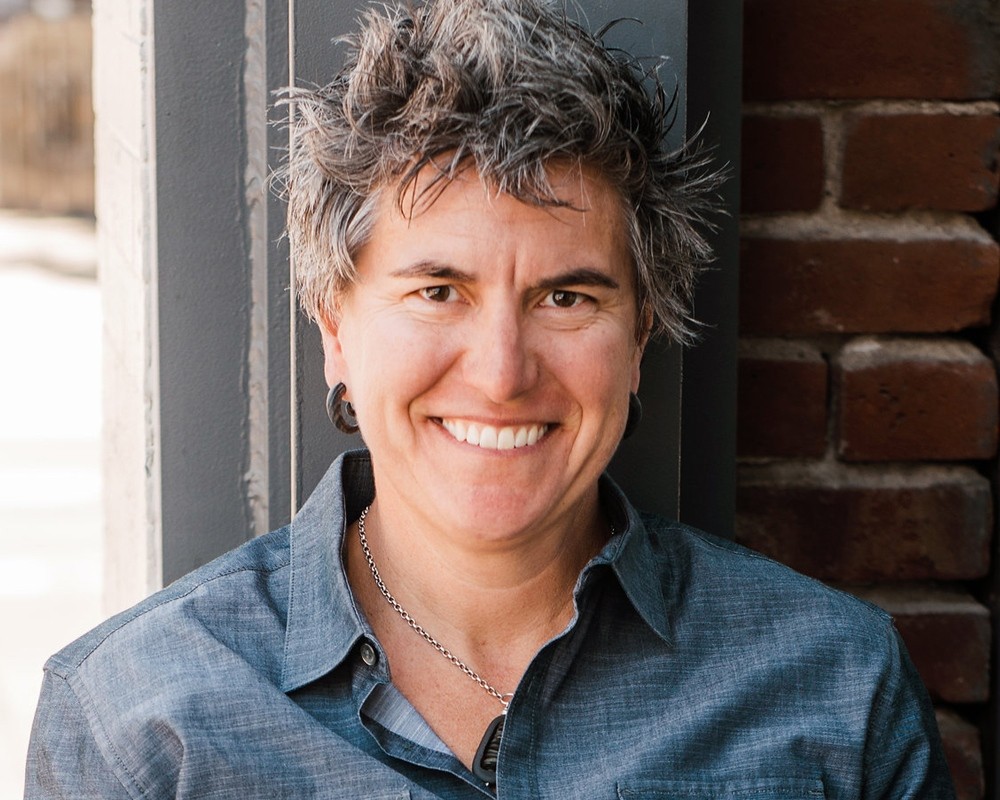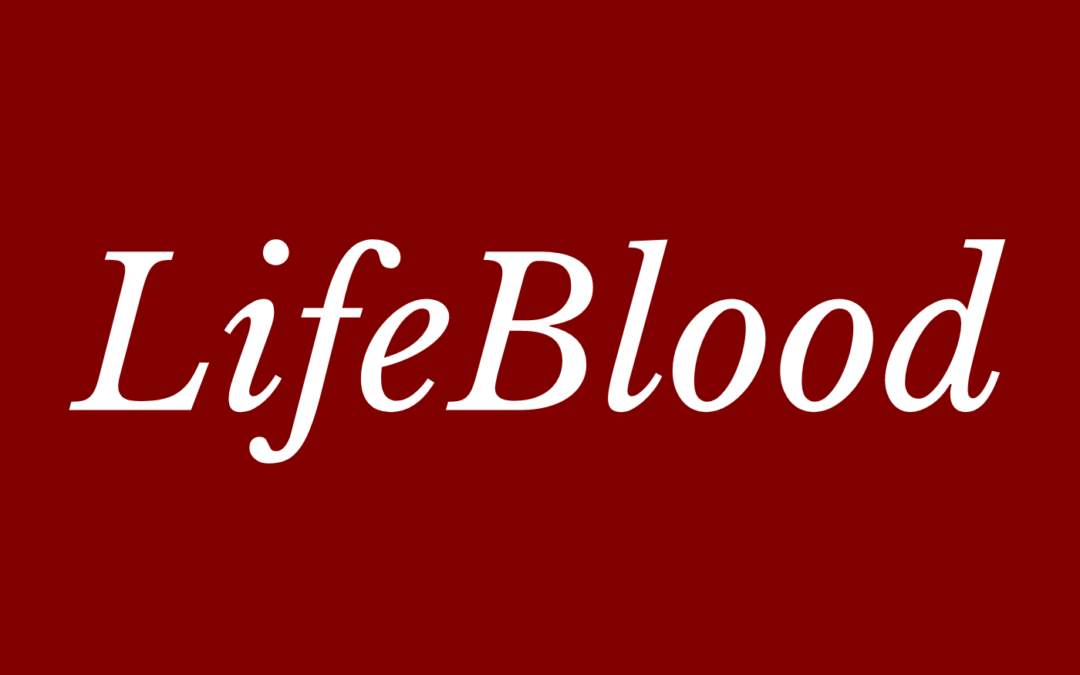How to Be an Ally with Ash Beckham
Want to be an advocate for marginalized people, but don’t know how? Ash Beckham shares her experience into how to be an ally!
Listen to us On
About the Episode
LifeBlood: We talked about how to be an ally, what it means to be an advocate, how to start doing it, the importance of authenticity in the face of political correctness, how to be an advocate in your community, and why the first step is often the hardest with Ash Beckham, author, speaker and facilitator.
Listen to learn why leadership is a disposition, not a position!
For the Difference Making Tip, scan ahead to 18:00!
You can learn more about Ash at AshBeckham.com, Facebook, Twitter, Instagram, YouTube and LinkedIn.
Thanks, as always for listening! If you got some value and enjoyed the show, please leave us a review wherever you listen and subscribe as well.
You can learn more about us at MoneyAlignmentAcademy.com, Twitter, LinkedIn, Instagram, Pinterest, YouTube and Facebook or you’d like to be a guest on the show, contact George at [email protected].

George Grombacher
Lifeblood Host

Ash Beckham
Guest
Episode Transcript
Come on
george grombacher 0:12
Ash, are you ready?
I’m ready. All right, I’m ready to people are ready. Let’s go Welcome to lead blood engage. This is George G. Our guest today, strong and powerful ash Beckum is the accidental activist, dynamic speaker, storyteller and workshop facilitator focused on starting conversations on the importance of acceptance and empathy. She’s the author of step up how to live with courage and become an everyday leader. Ash, tell us a little about your personal life’s more about your work and why you do what you do.
Ash Beckham 0:44
Well, while we’re shooting this this morning, I guess the personal life starts with my family, I have a wife and two kids and one of them was up at about 4am this morning. So far, it’s been it’s been one of those mornings to get you always going to make sure the coffee’s ready to go. So that is life. And then like all of us, I wear a multitude of hats, mostly entrepreneur base. So I do speaking on equity and inclusion, inclusive leadership, and then also run a family business, which is a youth sports tournament company. So that that keeps that keeps me busy. Nice. So you had a TED Talk go viral? Tell me a little bit about that.
I did, it was it was pretty unexpected. I had, you know, had had wanted to create this life, that gave me the flexibility to do what I wanted to really was hesitant to take a nine to five, my parents are both entrepreneurs. So that was just in my blood. And, and so is anybody that’s that’s tried that or does that knows it’s, it’s a hustle. So I was always hustling from, from one thing to the next, trying to make ends meet and finally got to the point where, you know, it was it was a comfortable life, right. And so then I decided to do something creative. So I spoke out at an event called Ignite,
which is a speaking event that’s more for amateur speakers in town and got some traction with that that one went viral. And it’s a small speaking community. So the next step, you know, I felt like that that resonated, and I enjoyed it. And so the next step was the TED talk, but I was not, I was not prepared for, for what that platform would would lead to. And so I had never pursued a career as a as a speaker. And then that happened. And and then how do you not write I feel like when you when you have a message that resonates with people that are about them being more authentically themselves, and you feel comfortable sharing your stories, when you have the voice, you almost have a responsibility to, to share it and put it out there. So people don’t feel alone. And that started. So that was 2013. And that’s been, that’s been the track so far. So it’s been it’s been amazing. I’m incredibly indebted to community here for being supportive and of course had for for everything they do.
Unknown Speaker 2:56
appreciate them.
george grombacher 2:59
That’s an interesting thing. If you are capable of having an impact or making change and speaking out, are you obligated to do so? You say yes.
Ash Beckham 3:11
I don’t know, if you’re obligated? I think that it’s an incredible opportunity. You know, I would never I don’t it has to be driven in part by yourself. Like, none of us are completely altruistic, right? Like, I don’t think that that’s just to be completely straightforward. They get you have to get something from it. But it’s also really scary, right? I think when we when we put ourselves out there when we when we lead authentically in any way. And that’s a viral TED talk or, you know, speaking at your school board meeting, right, when you’re, when you’re putting yourself out there, there’s inherent risk, and that’s scary. But that’s not the reason not to do it, right. Like, just because it’s scary, doesn’t mean we don’t step into, into our power in that way. So
you know, it gets exhausting. I think being being the one person that always speaks up, right, or the one person is always the advocator, advocating for yourself, I think that, you know, underscores the need for allies in that way. But to fully embrace the opportunity that comes with speaking for yourself knowing that there’s so many people that can I mean, in the, you know, my my world and my human experience to the LGBTQ world, when I first started to speak, and when I, when I did that I was, I was so frustrated by friends of mine that weren’t out right that couldn’t do that. And then finally came to even though, you know, months before, I had been as closeted as anybody, right we, we get a short term memory, I think in sometimes in our bravery and our courage, and where we just were so to me, it’s more of an obligation for people that that can’t need to know that they’re not alone. And if that’s something you feel like you can do, that’s great. And that doesn’t mean you have to, you know, be a public figure and speak in front of 1000s of people. But can you just be more yourself in one environment where people can where people can see you and relate and connect the ad to me that’s, that’s advocacy.
Unknown Speaker 5:00
In the same way, it’s not about the numbers, right? It’s about doing what you do and you’re passionate about.
Unknown Speaker 5:05
Yeah, I think that that’s really important right there. Right? It’s it’s, it’s it’s perspective and scale, just because I’m not speaking at on the TED stage. And just because maybe my video is not going to be viewed a million times, doesn’t mean that I’m not having this massive impact just on my circle or my community.
Unknown Speaker 5:23
Right? And we never know, right? I mean, we know the people we’re in direct contact with, but to me, it’s so many times the one off, right, like somebody, when you’re out and about somebody sees how you talk to your kids, or your spouse, or how you approach a challenge at work, right. And you might never even ever think that those people see you as leader, you might not have that direct line, but it’s the way that we operate every day, that really gives us that broader, broader impact. And to me, that’s where the scope and the scale matters. It’s the people that never tell you how much you’ve inspired them that that is that’s important and critical.
Unknown Speaker 5:56
So this is I think that we’re living in a really, really interesting and dynamic and unique and in some ways, great, and in some other ways, bad time. How do you think about navigating that?
Unknown Speaker 6:11
How? So? I’m interested in being a good person, I’m interested in being an advocate for people I’m interested in in being a leader. I don’t know how how do I get started?
Unknown Speaker 6:23
Sure. Right. I think I think that’s, that’s reasonable. I think everybody does that. And I think a lot of times, especially when we’re talking about ally ship, right, if, if we’re advocating on behalf of ourselves or a group that we’re a part of, then then that seems the root of that seems easier. It’s it’s kind of, we know the inside tricks of the trade, right? And we have legitimacy within the organization. But I feel like now, Ally ship is just so critical, because we’re coming up with with a mass of people that believe in humanity, and equity and change, right. And if we only have if we don’t count allies, I think the impact is twofold, right? If we don’t count allies, it’s just it’s fewer numbers. And so we see our we can be seen as just a marginalized group. But then also, it’s that bridging the gap, right? If some of these analysis somebody wants to know about how my wife and I conceived our child, that’s a pretty personal question to ask me. But if I have that person is straight, and I have a straight ally that can answer those questions. It’s so much more approachable, right? Because, well, that person was where I was, until they gained more knowledge. And so extending those conversations to be a little bit easier and a little bit more comfortable is, is the purpose of ally ship. And so we all want to step into that in some way. Right? It kind of allows us to avoid what would be potentially offensive conversations as a kind of an incubator for, for learning. And we all want to step into that if, if we have if we’re invested in social change. So I think we have to, there’s a couple things we can do. We have to educate ourselves, right? It’s not the responsibility of people of color to end racism, right, or for people with a disability to end ableism. Like, it’s our personal responsibility to, to understand the challenges that exist, and to educate ourselves around that. And then at the same time, we have to know what kind of ally people need us to be right, just because I can be, you know, loud and outspoken. And really draw from my personal experience and LGBT Q issues. I had an experience where I had a friend of mine, who was undocumented and faced a challenge, and I, you know, jumped up on my soapbox and made this big stink publicly about it. And, and they were just hurt and offended and completed and seen. Because as it escalated the privilege that I had to not be fearful if police were called, was completely different than experience, right? So so you have to know what kind of ally somebody needs you to be, you know, your strengths, and you know, your weaknesses, but at the same time, check yourself in that space to know. Okay, what kind of ally do people need me to be and how can I show up best for them? Because that’s what it’s about at the end of the day, right? It’s not about you. It’s about the cause and the people that you’re trying to that you’re trying to advocate for.
Unknown Speaker 9:15
That, that certainly makes sense.
Unknown Speaker 9:18
How do I do that, though? I am, let’s just use me. I’m 43 years old. I am I’m a white guy. I’m married. I have two kids, I’ve got a job I do a podcast. I am interested in, in helping people to live the lives that they want. empathetic, and I think that that justice is is one of my core principles and values and I’m interested in rooting out injustice however I can.
Unknown Speaker 9:48
But how do I how do I educate myself on all the different people that need help? And how do I educate myself on all the different ways to advocate for them? That seems like it might be overwhelming
Unknown Speaker 10:00
To me 100% 100%. And it is there. It’s a lot that’s, that’s out there. And I think the the first thing you can do we know what affects you most directly, right? Is it something within your community? And where you’re based what feels like the most marginalized group, right? Does your friend do your kids have friends that are of a certain race? What are the what are the local issues that? Or is there an LGBTQ issue happening in your local schools, right, like, make it make it local, because those are where the changes are really happening. That’s where we build relationships, and trust to be able to have those conversations for you to be able to go to the parent of the trans kid who wants to play on the sports team that they choose, and really have that conversation. And we go in with some, you know, a healthy dose of humility and vulnerability and say, Hey, I understand my privilege. I probably don’t understand it fully. But But But what can I do? What are what are the issues? And what can I help? And sometimes that’s something as simple as educating your kid and sometimes that’s as simple as, you know, getting involved in local politics, but I think the personal connection, it feels less
Unknown Speaker 11:12
to what’s the word, you know, it isn’t that top down, like, oh, here I am helping these people, right? It’s that involvement in that knowledge and that, that connection to an actual person that is going to not only invest you in the cause, but make you a better applicant and a better ally. And also, on that local level is where we see the impact of the things that we do, right, like, just signing up to, you know, making a donation to the ACLU. Although amazing, and I love the ACLU is completely different than standing up for one of your kids friend at a school board meeting, right? Like the the intent, the impact. And then we went, I mean, Courage begets more courage, right? The more we do, we do that small thing. And then maybe we go to a higher level or a broader level, or we’re more vocal, or we see where change is needed. I think, I think once you start to get involved in what you do, do something anything different than then what you’re currently doing. I think that’s where we start to see the change. And that’s the thing, I think a lot of times, if we want to, we can’t expect to have change, if we’re not willing to change, even if it doesn’t affect us directly. We have to be willing to do something that’s scary, something that’s out of our comfort zone, something we’ve never done before that the outcome be different, right? Like there’s no change without challenge. And we have to challenge ourselves. Even if we’re not directly affected by the change we’re seeking. I love it. I think that that’s great advice. Reminded me of the think it’s a Buddhist, saying that you need to attend to the part of your garden that you can reach I can’t solve, yeah, I cannot solve the the the issue of that people who are undocumented are facing the United States, I can’t solve all of these issues. But to your point I can I can, I can be a part of a solution with my kids school and with my kids, classmates, or people that that that I work with. So being and that turned you into Sorry, I was. And that turns you into the dad I read then you have parents that are probably in the same boat that you are that that want to do something but then think, well, I can end racism. So you move on to the next thing on your to do list, right? So so I think then you because then all of a sudden, people in the community see you, or kids, you know, you go to the kids soccer game, then you become a resource for those people that don’t know how to approach this. And you’re like, Well, this is how I this is how I started. This is what we need. Right now we’re having a panel discussion, we would love for you to attend, right? Like then it’s, it’s you doing and providing in the same way. Like we always need to see ourselves as both mentors and mentees. And no matter where we are on that, there are people that are going to want to learn from us as we continue to learn and so really put you in that in that position of spreading the message, you know, 365 Yeah. 360 also 365
Unknown Speaker 14:03
All the 300 numbers, I think. Yeah, I think that that
Unknown Speaker 14:08
right now with social media and just just information overload, we think we all feel like we’re drinking from a firehose and it can have the opposite effect of just shutting us down and throwing our hands up, when in fact, you know, doing the work that you’ve just described and being an example and stepping up and when you do that you start to strengthen the muscle of being uncomfortable and approaching somebody and saying words that you’ve never said before. But once you do that say okay, okay, it wasn’t that bad. I can certainly do that again and then other people see you doing it. Absolutely. Absolutely. And you get you get better and I think by experience like it is uncomfortable work. That’s that’s like it’s uncomfortable to have awkward conversations. But the only way it becomes less comfortable willenberg way becomes more
Unknown Speaker 15:00
comfortable is when we do it, and we expose ourselves to it, right? It’s ideal thing where if you fold your arms, and then you fall in the opposite way, it feels awkward. But it just because it’s the way you’ve always done it, right, when you start to do it differently, to do it the opposite way, you know, within a week, you can’t tell the difference, it’s breaking those patterns we’ve had in our mind, and those that’s, it feels uncomfortable, but it’s not gonna, it’s not gonna kill you, it’s just gonna be a little bit awkward. And if we imagine if we all sat in the awkward the great conversations we would have, if everyone was just willing to be offered a little bit more. Yeah, yeah, I appreciate that. And as much as I, part of me dislikes the term, safe spaces, that’s what we need. We do need the ability to make mistakes and to say things incorrectly, because it is the first time that I’m saying these things. And perhaps the first time I’m engaging in a conversation, and that means I’m probably going to screw up and I need Well, I think it’s valuable, to have the grace to be able to make that mistake, and to not think that
Unknown Speaker 16:03
I’m going to be attacked, or fired or canceled or whatever. Right, exactly. And I think that that’s really hard. And I think that’s when it comes in part of the work that I do in that leadership piece is somebody that is marginalized, that is in that leadership role, has to be willing to have the conversations that aren’t
Unknown Speaker 16:22
exactly politically correct. Somebody has to come and be able to ask me,
Unknown Speaker 16:28
things that are uncomfortable or maybe not framed in the PC way. Right. But I would so much rather have them ask me the question. Because when we have the trust build up, I know their intention is true. Right? Like that’s it, you know, social media, that’s why this local thing matters so much more is because I know you, I trust you. And I know you’re working through it. And I know some phrases you might use or an angle you might have or an ignorance that you might might not be aware of. Right? I know that you’re trying and together, we’re working, both of us towards being better leaders. But a lot of that is on me being empathetic. And me being willing to embrace that leadership role of, you’re going to say something, and we’re going to talk through it because what I want is for you to come back again, when you have a question, if I shut you down, because you haven’t wrapped it in what’s politically allowed to be said, right, or, you know, you don’t know the 56 genders that exist on Facebook, then you then you can’t be an ally, then you’re not part of the cause. Like we have to meet people where they are, always continue to move forward and step up. But meet them where they are the the your you don’t, you don’t get to get on the bandwagon. Like how, how can we say that when we know people are doing when they’re when they’re genuinely trying and we have these personal relationships, you can tell you know, in your gut when somebody is trying and when they’re not. Let’s Let’s trust that and not what the PC culture says we should, we should say, Amen.
Unknown Speaker 17:54
The people are ready for your difference making tip even though that was an excellent one. What do you have for
Unknown Speaker 18:00
you’re a leader right now, from wherever you are, you can be the CEO of a Fortune 100 company, or the captain of the girls 10 US Soccer team, right? You are a leader, there are people in your life. And Leadership isn’t a position at the disposition and we make choices every day on the person we want to be. And that his leadership and and that’s continual work. And so so when we embrace that, when we when we believe that of ourselves, when we look in the mirror and say I am a leader, right and believe it and we say it enough, until we do we have to do those small challenges not that epic challenge is not ending racism or homophobia in the weekend, right? But, but really face those challenges that that we have in that, that we know exist and do things just a little bit different, even if it’s scary in the pursuit of change. And when people see that, that’s the full impact that our leadership can have. So so see yourself as one and then do something just a little bit different today. Well, I think that that is great stuff that definitely gets come. Come on. Ash, thank you so much for coming on. Where can people learn more about you? How can they engage with you? Absolutely. So you can go to my website, which is ash back. home.com. And you can find me on Twitter at ash recom and on Instagram at the ash Beckham. And then yeah, and in feel free to reach out. I love having these conversations with people. Awesome. Well, if you enjoyed this as much as I did, show us your appreciation and share today’s show with a friend who also appreciates good ideas go to Ash beckum.com. That’s a s h BECKHA m.com. Find her on Instagram and Twitter. I’ll list all those in the notes of the show. Thanks, ganache. Alright, thanks so much, Greg. Thanks for all you do really appreciate you. And until next time, keep fighting the good fight. We’re all in this together.
Transcribed by https://otter.ai
More Episodes
Becoming Your Own Banker with Nick Kosko
Becoming Your Own Banker with Nick Kosko Have you ever thought there was more to the financial world than simply traditional stock market investing? Nick Kosko shares his story of searching for more, finding strategies that made sense and putting them into...
How to Find a Career You Love with Kathy Caprino
How to Find a Career You Love with Kathy Caprino What's keeping you from reaching your ultimate potential and finding a career you love? Kathy Caprino shares her expertise and research into the 7 gaps that many of us have and what to do about it!About the...
the Future of NFTs with Jesse Krieger
The Future of NFTs with Jesse Krieger You've heard of them, but what will the practical uses be and what's the future of NFTs? Jesse Krieger breaks down how authors and creators will tell this tech and what it will mean for consumers!About the EpisodeLifeBlood: We...
Debt Collection with Taylor Kosla
Debt Collection with Taylor Kosla What are your rights as a consumer regarding debt collection? Taylor Kosla shares her expertise into how to protect yourself from aggressive collection agencies!About the EpisodeLifeBlood: We talked about debt collection, consumer...
Impact Investing with Rebecca David
Imact Investing with Rebecca David Have a passion for social causes or other issues we're facing as a people? Rebecca David shares her experience and expertise into how you can begin to have a positive impact on these importa causes by how you invest your money!About...
Weight Loss Diet with Rocky Haire and Valerie Maclin
Weight Loss Diet with Rocky Haire and Valerie Maclin Wherever you're currently at, is it possible to lose weight and start living a healthy and sustainable lifestyle? Rocky Haire and Valerie Maclin think so and have developed a program around breaking the addiction...
Behavior Change with Nagui Bihelek
Behavior Change with Nagui Bihelek How much more success would you and those you work with enjoy if you had a clear understanding of how others wanted to be communicated with? Nagui Bihelek has spent his life working to figure out how to make that happen in order to...
Buying Your Next House: A Step-by-Step Process
You’re thinking about buying a home, that’s very exciting! Home ownership has always been an integral part of the American Dream, and home values account for a large portion of many Americans overall net worth. With that in mind, it makes sense you want to...
Book Club featuring Adam Coffey
Book Club featuring Adam Coffey Our monthly Book Club features Adam Coffey and his book The Exit Strategy Playbook. About the EpisodeOn this edition of the Book Club, Adam Coffey talks about his book The Exit Strategy Playbook: The Definitive Guide to Selling Your...
Join the show.
Interested in being on the show? Tell me a little bit more about you and what you’d like to talk about!









